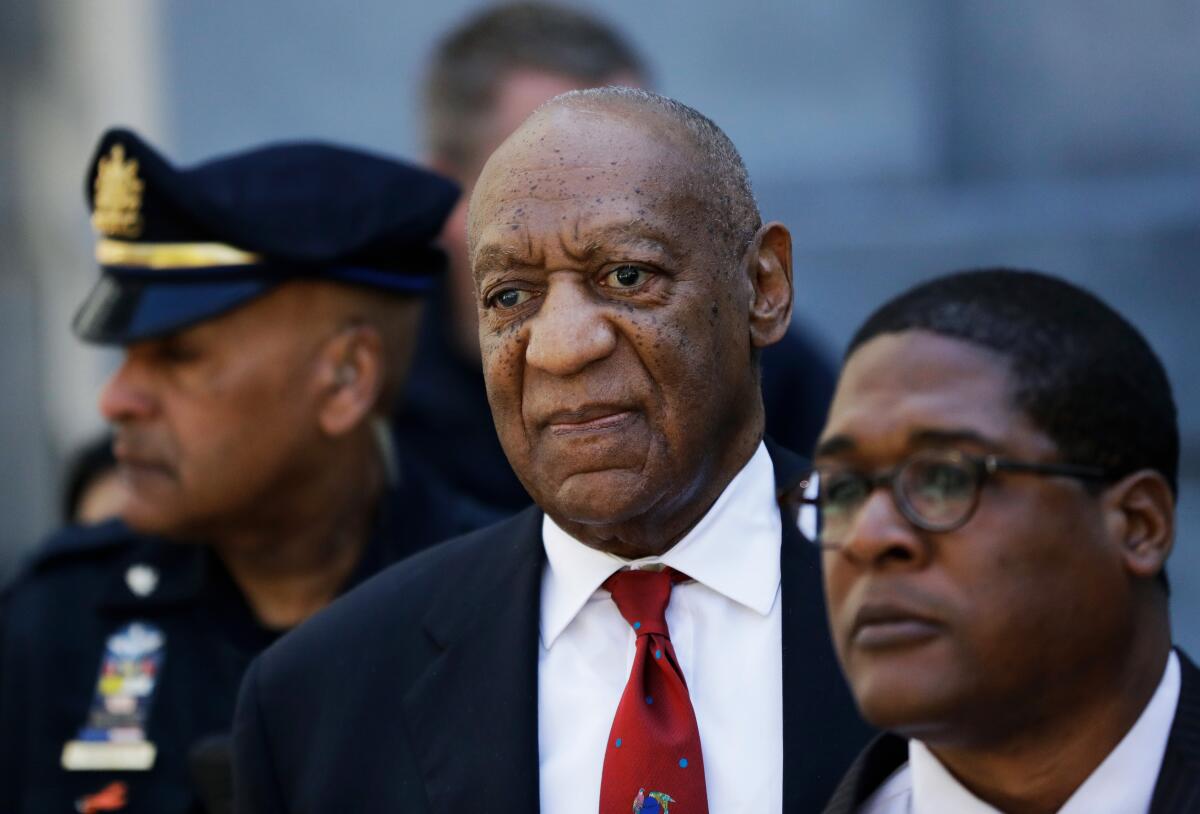Letters to the Editor: Bill Cosby was freed because of sexist, unequal justice, not ‘inalienable rights’

- Share via
To the editor: So Bill Cosby was led by one prosecutor to believe that there was no possibility of criminal prosecution, so he did not invoke his right to plead the 5th Amendment in a civil case. Then, another prosecutor ignored the promise made by his predecessor, and Cosby was convicted and sent to jail. (“The Pennsylvania court got it right in overturning Bill Cosby’s conviction,” Opinion, June 30)
Now the Pennsylvania Supreme Court has decided that Cosby’s “inalienable rights” had been denied him, and he has been set free. And UC Berkeley Law Dean Erwin Chermerinsky says this is the “right call.”
Actually this is an example of unequal justice. Cosby is a famous and rich celebrity who has the money and power to hire expensive lawyers to fight his case. His accusers have “inalienable rights,” but for some reason those rights don’t count in this case.
It’s impressive that smart attorneys who are experts in legalities (as defined by the Constitution) have been able to convince the court that justice has been thwarted in Cosby’s case. Where are the talented (and expensive) legal experts fighting to prove to the court that women have lost their inalienable right to protection under the law?
Diana Wolff, Rancho Palos Verdes
..
To the editor: It is unhelpful to say the court ruling on Cosby is “based on a technicality.”
A technicality is a legal principle (found in a constitution, statute or court decision) that is known mainly to lawyers, not the general public. Such a principle is no less valid for being known mainly to lawyers.
Further, the Cosby decision was based on the 5th Amendment and the binding character of a promise (specifically, not to prosecute). These principles are widely known and are therefore not technicalities.
Michael Gardner, Malibu
More to Read
A cure for the common opinion
Get thought-provoking perspectives with our weekly newsletter.
You may occasionally receive promotional content from the Los Angeles Times.









